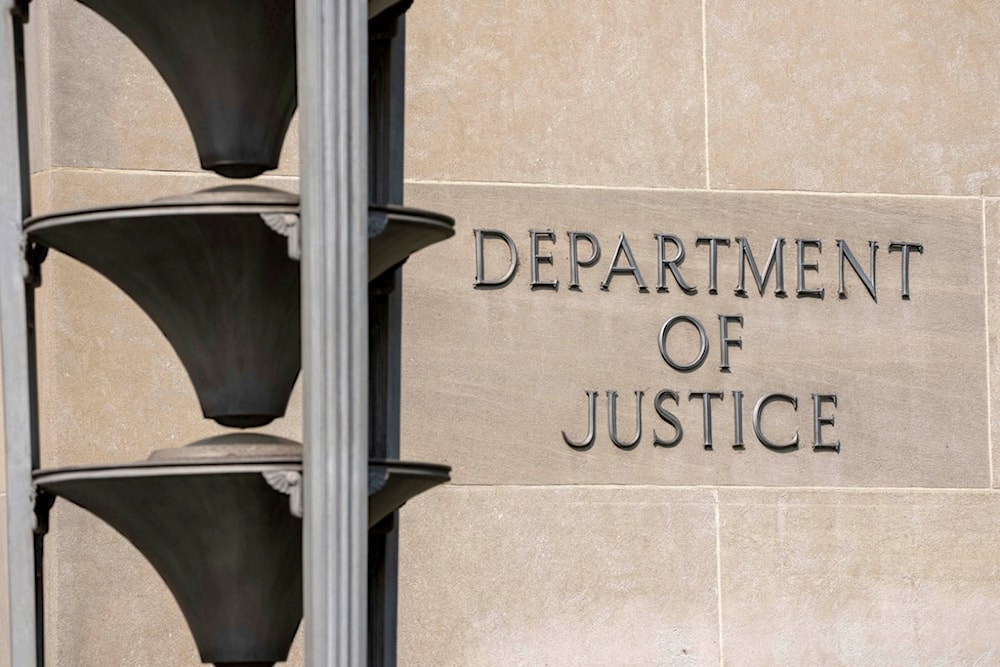
As Election Day nears, DOJ staff threats are on the rise, reflecting heightened security concerns for Department of Justice employees. Reports indicate that federal workers are facing escalating online harassment and increased personal safety risks due to polarized political tensions. These developments have drawn attention to the security protocols in place for federal employees and the potential implications for broader public trust in the Justice Department’s role in overseeing election-related matters.
DOJ Staff Threats Reflect Growing Political Tensions
The surge in DOJ staff threats highlights the growing risks federal employees face in a politically charged environment. With the Justice Department playing a critical role in enforcing election laws, investigating potential election interference, and ensuring a fair voting process, employees are increasingly exposed to public scrutiny. In recent months, several DOJ workers have reported aggressive online harassment, ranging from threatening messages on social media to targeted campaigns aimed at discrediting them and their work.
As federal employees handle sensitive cases, their personal and professional lives are being affected by partisan divisions. DOJ workers are receiving messages that suggest a lack of public confidence in their actions, fueled by misinformation and politically motivated campaigns. For many, these threats represent a new reality in which federal duties are fraught with personal risk, adding pressure to an already high-stakes work environment.
Increased Harassment for DOJ Staff Amid Election Workload
The workload for DOJ staff has intensified in preparation for Election Day, making DOJ staff threats particularly concerning as federal workers juggle a high volume of election-related cases. With tasks ranging from monitoring potential voter suppression to investigating fraud allegations, DOJ employees have become visible targets in the heated election landscape. This increased visibility has resulted in more frequent online harassment, with some DOJ workers reporting harassment that includes their personal contact information being leaked online.
For many DOJ employees, the rise in harassment not only affects their sense of security but also threatens their ability to perform their duties effectively. Employees are now balancing their professional responsibilities with increased vigilance for personal safety, a task that some feel detracts from their primary mission of ensuring a lawful election process. This heightened harassment impacts morale, as many workers feel that their essential contributions to the democratic process are being undermined by public hostility.
DOJ Security Measures and Employee Protections
In response to DOJ staff threats, the Department of Justice has implemented additional security measures to protect its employees. These protocols include enhanced cybersecurity measures, stricter access controls, and, in some cases, increased physical security for staff in high-risk roles. For employees facing severe harassment, the DOJ has offered protective guidance, such as monitoring personal social media accounts and establishing clear protocols for reporting threats.
Some DOJ offices are also considering restricting public access to facilities in high-risk areas where employees feel particularly vulnerable. While these measures aim to offer immediate relief, the DOJ acknowledges that it is challenging to prevent all potential threats. Many employees feel that more comprehensive, longer-term solutions are needed to address the root causes of harassment in the federal workplace.
The Role of Social Media in Amplifying DOJ Staff Threats
Social media platforms have played a significant role in amplifying DOJ staff threats, allowing harassers to spread misinformation and target DOJ employees with little accountability. In some cases, DOJ workers have reported that online harassment begins with public posts questioning their integrity, which quickly escalates to threats and doxing (publishing private information online). The anonymous nature of many social media platforms has made it difficult to identify perpetrators, adding an additional layer of complexity to DOJ security efforts.
For DOJ employees, the online nature of these threats has created a climate of constant surveillance, where any action or statement made in a professional capacity can lead to personal consequences. Some have called on social media companies to implement stricter policies around harassment, especially for federal workers whose roles expose them to public scrutiny. However, with limited regulations in place, DOJ staff continue to face risks that are largely outside their control.
Legal Ramifications of DOJ Staff Threats
The increase in DOJ staff threats has raised questions about potential legal actions against individuals or groups responsible for harassment. The DOJ has the authority to prosecute certain types of harassment and intimidation, especially when these actions interfere with federal employees’ ability to perform their duties. In recent years, there have been legal precedents where individuals making credible threats against federal employees have faced criminal charges. However, the complex nature of online harassment often makes it difficult to pursue these cases to full prosecution.
For DOJ staff, the possibility of legal recourse provides some reassurance, though the time and resources required to prosecute individual cases remain a significant hurdle. Additionally, the DOJ’s role in protecting its employees from threats while upholding free speech presents a unique legal challenge. While federal laws offer protections for government workers, the nuanced nature of election-related cases means that threats may be indirectly linked to broader political campaigns rather than specific individuals, making it challenging to take direct legal action.
Broader Impact on Public Trust in DOJ Operations
The surge in DOJ staff threats also has wider implications for public trust in the Department of Justice and the federal government. With DOJ workers facing harassment for their role in overseeing election integrity, some members of the public may begin to question the impartiality and effectiveness of DOJ operations. For DOJ staff, maintaining public trust is essential to their mission, and the harassment they face could potentially harm the department’s reputation, leading to skepticism about its role in the election process.
For many Americans, the perception that DOJ employees are being targeted for fulfilling their duties could suggest a lack of stability and transparency in the government. This perception may be further fueled by politically motivated narratives that portray federal workers as aligned with specific political agendas, rather than impartial enforcers of the law. The DOJ’s challenge lies in reassuring the public that its operations are grounded in integrity and that it remains committed to a fair and unbiased election process.
The Road Ahead for DOJ Employees
As Election Day draws nearer, DOJ staff threats are likely to persist, posing continued challenges for federal workers. For DOJ employees, maintaining a focus on their professional responsibilities amidst escalating threats is critical to upholding the principles of the electoral process. The DOJ’s commitment to supporting its employees, combined with efforts to improve security measures and address harassment, remains a priority as Election Day approaches.
Looking forward, federal agencies may need to examine additional ways to protect employees facing harassment, including enhanced training and support systems. The broader implications of DOJ staff threats suggest that election-related harassment is a pressing issue that federal agencies may need to address for future election cycles as well. Ultimately, safeguarding DOJ staff from harassment is not only about protecting individuals but about ensuring that democratic processes are maintained without fear or undue influence.
image credit – AP


